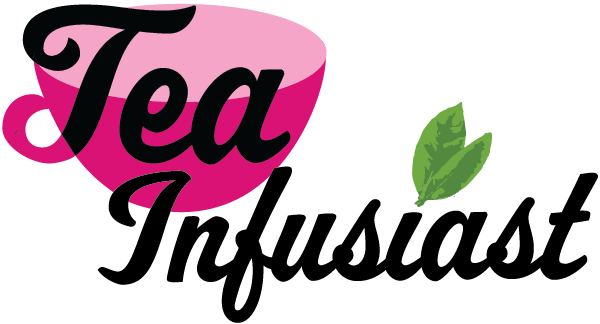We need call out and push back against the cult of productivity. Too many spaces promote time scarcity and encourage us to behave as if we were robots. This cult is terrible for our minds, bodies, and creative energies. Two experiences recently underscored how relentlessly we can focus on productivity. This post identifies some pernicious aspects of the cult of productivity. It also shares ways to resist. Calling out inhumane elements of work culture (including those we have internalized) is important. Likewise, cultivating restorative personal practices like intentional tea sessions can help, too.

First Experience: Inside My Head
A good part of the work I do professionally and in tea spaces is creative. Often, I judge myself because I can’t just plow through big chunks of creative work on command. I have to take many breaks and, often, switch to mundane tasks. It can be so frustrating! This is how the cult of productivity lives inside my head–frustration that I can’t muster a high and consistent creative output between breakfast and lunch, and then from lunch to the end of the work day.
I am not alone in my misguided sense of productivity. “For most of us,” activist, coach, and podcaster Omkari Williams writes, “our relationship to time is largely about how much we can cram into a day.” She calls out this relationship. I agree: constantly trying to pack more into our days is not a healthy way to be. When we step out of the commonly accepted ways that many of us think about our work, we can appreciate how ridiculous the cult of productivity is. We aren’t machines churning out widgets. We are part of the natural world, not outside of or above it.
Ebb and flow are the rhythms of nature. Consider the physical act of nourishing our bodies with food. The famous actor and comedian John Cleese reached for this metaphor to explain the waxing and waning of creative output. In his book Creativity, Cleese relates his realization “that the blockages weren’t an interruption in the process [of creativity], they were part of it. For example, when you eat, the bit when the fork returns empty to your plate isn’t failure. It’s part of the eating process.”*
This insight has taken hold in a deeper way for me lately. It’s helping me identify other dysfunctional attitudes and practices that are part of the cult of productivity.
Second Experience: Workplace Norms & Pressures
Not too long ago, I was serving on a committee with about half a dozen other people. The committee’s work was meaningful and I was particularly grateful that it included a number of people that I know well, like, and deeply respect. So, I was feeling good about this work.
Then, one day while we were in a planning session about arranging our schedule, someone proposed that we meet for three hours straight with no breaks to do some work that required sustained concentration. (I won’t even get into the fact that this meeting was being scheduled for the middle of the day right through traditional lunch times.) I suggested we divide the work into two sessions, or extend the total meeting time and add in a couple of small breaks. No other committee member supported my suggestion. Not one! In fact, one member even private messaged me, suggesting I get a standing desk! This disregard for reasonable breaks is one example of how the cult of productivity circulates in workplaces.
Pushing Back Against Unhealthy Demands
This committee exchange was a lightbulb moment for me. It’s these kinds of workplace and cultural attitudes that push us to disregard our needs and help shape those unhealthy voices in our heads. They push us, in other words, to work and think in inhumane patterns. When it was clear that the committee wanted to structure our work this way, I shared my criticism for this approach. I decided I could participate, but that I would occasionally leave the meeting to move, stretch, and take breaks. Another time, I may decide I can’t serve on a committee that structures work this way.
Last year’s me wouldn’t have advocated for the more humane schedule or set a boundary about how I would participate. Now, I try to take to heart Buddhist monk Thich Nhat Hanh’s observation that “[i]n our daily life, we have to remind ourselves to come back to our body and to take care of our body.”
Note: Power differentials and precarity can make it hard to push back against unhealthy workplace demands. The more privilege and security we have, the more we are able to (and responsible for) pushing back.

Intentional Tea to Resist the Cult
I need to get things done. As I do so, I am trying to chart a course that sustains my health, spirit, and creativity. I am committed to the intention Omkari Williams names “to engage differently.” Like Williams, “I’m going to build in time that is just for being, not doing.” There are many ways to slow down and embrace the present moment. Thankfully, I already have a practice to draw on for this purpose.
In addition to speaking out against the cult of productivity in the workplace, intentional tea time helps me reclaim my body and rest my mind. With an eye toward banishing time scarcity and the unnatural push to behave like robots, can we elongate and relish tea time? Find that sunbeam, breezy shade, or comfy chair. Relax. See, touch, and smell those tea leaves before they are steeped. Pour the tea slowly. Do you see what we are doing here? Instead of approaching tea time in a rushed or mechanical way, can we BE with the tea?
What practices do you build into your day to add space, pause, and rest? How do you push back against the cult of productivity?
Interested in cultivating a more expansive and intentional relationship to tea? I very highly recommend checking out Sooz Hammond’s work through Being Tea. Their Quiet Tea Sundays, for example, is a great place to start!
Interested in reading more about engaging the sensory delights of tea to live more mindfully? Check out my blog post, “Tea Soundscapes and Mindfulness.” Or, maybe you’d like to take a fun quiz to find out “What Kind of a Tea Drinker Are You?“
*SOURCES CITED IN THIS POST
- Omkari Williams, June 17, 2022 email newsletter. Quotes used with permission.
- John Cleese. Creativity: A Short and Cheerful Guide.
- Thich Nhat Hanh. “The Bell” from At Home in the World.

2 replies on “Resist the Cult of Productivity”
I don’t have any other words at the moment except to say – thank you for publishing this post; this reminder to return to one’s self. It was such a healthy, refreshing read.
Thank you, Katharine, for reading and taking the time to reply. I always feel a little vulnerable when I write a post that doesn’t center on tea. So, it feels extra good to know someone appreciates it.